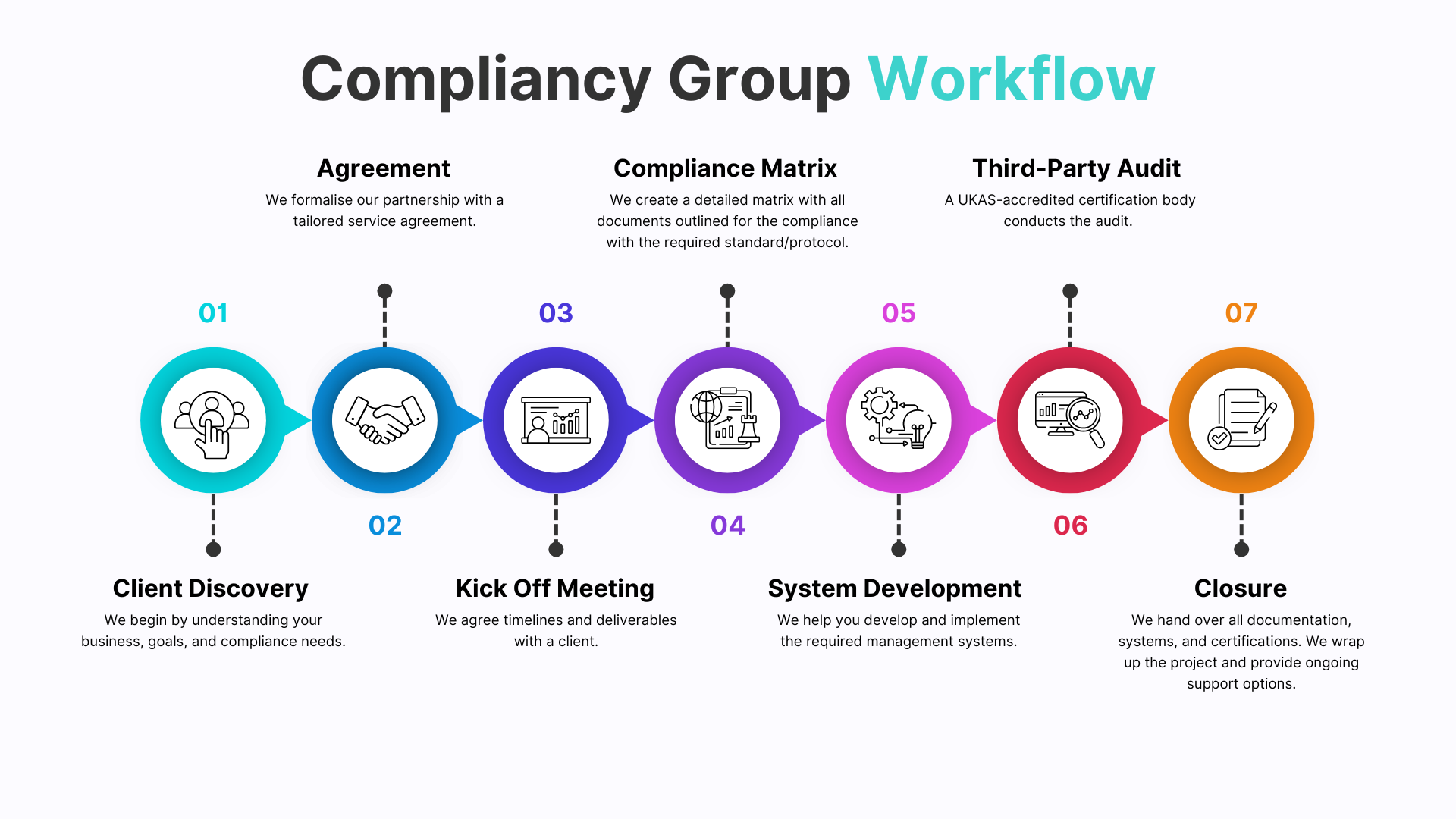We're Here To
Help
A Legionella Risk Assessment is a crucial inspection designed to identify and control the risks of Legionella bacteria in your water systems. Completing a Legionella Risk Assessment demonstrates your business’s commitment to health and safety, regulatory compliance, and proactive risk management – trusted by clients, partners, and regulators across all sectors. With robust Legionella management, you protect employees, visitors, and the public from the dangers of Legionnaires’ disease, avoid costly legal consequences, and build a reputation for safety and responsibility. Compliancy Group guides you through every step – making Legionella compliance clear, practical, and a genuine business advantage.
We understand the complexities of Legionella regulations and water safety management. Our team brings hands-on experience with Legionella risk assessments, control measures, and industry best practices.
No one-size-fits-all here. Whether you need an initial assessment, monitoring programme, remedial actions, or ongoing compliance advice, our services are fully customised to your operations. We offer flexible support packages—from essential guidance to comprehensive on-site consultancy.
We work exclusively with UKAS-accredited certification bodies and maintain a 100% pass rate for compliance assessments. Our clients trust us to deliver results that stand up to audit and regulatory scrutiny—helping you achieve, maintain, and leverage Legionella compliance for business growth.
Compliance shouldn’t slow you down. We help you build safer environments, reduce health risks, and improve operational efficiency—so you can focus on your core business.
You’ll work directly with our expert team, including leadership involvement from our CEO. We pride ourselves on responsive communication, clear guidance, and ongoing support throughout your compliance journey.
Demonstrate compliance to secure contracts and reassure clients, staff, and regulators.
Show your commitment to health, safety, and legal responsibilities.
Minimise the risk of Legionella outbreaks, illness, and costly liabilities.
Enhance your standing as a responsible and trusted organisation.
Regular assessments and compliance checks foster a culture of ongoing safety and operational excellence.
Strengthen Reputation
From initial assessment to ongoing support, our team ensures you’re always prepared and confident.
We streamline compliance processes, freeing up your team to focus on core business activities.
Services are tailored to your specific business needs, not generic templates.
Ongoing support, training, and regulatory updates keep your business compliant long after inspection.
Our 100% compliance pass rate and exclusive partnerships with UKAS-accredited bodies mean you’re in safe hands.

A legionella risk assessment should be reviewed at least every two years, or more frequently if there are changes to the water system, building use, or if monitoring shows control measures are not effective.
The assessment inspects water systems to identify vulnerabilities and risk factors, such as stagnant water, dirt, and poor temperature control.
It’s best to use a competent professional, especially for complex systems. The assessor should have the right knowledge, skills, and experience.
A legionella risk assessment identifies hazards, while a water hygiene contract focuses on ongoing prevention and maintenance.
A competent or responsible person is appointed—this could be you, a staff member, or a combination, as long as they have the necessary authority and expertise.
Testing can be done by a trained operator or a professional service provider, such as a water treatment company or consultant.
Yes, any business that uses water must complete a risk assessment as required by HSE’s Approved Code of Practice (L8).
Legionella is present in most water systems but rarely causes problems in mains water, as it’s treated before reaching your property.
Only 200–400 cases of Legionnaires’ disease are reported each year in the UK. The bacteria do not multiply below 20°C or survive above 60°C.